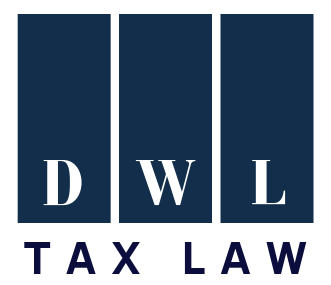Colorado Man Sentenced to 83 Months in Prison for Role in $7.2 Million Biodiesel Tax Credit Scheme

Jury Find Wisconsin Dentist Guilty of Tax Evasion
February 26, 2020
South Florida Business Owner Sentenced to 24 Months in Prison
March 11, 2020
The United States Department of Justice recently announced that a resident of Colorado has been sentenced to 83 months in prison for participating in a biodiesel tax credit fraud scheme.
Per the press release:
According to court documents and statements made in court, Matthew Taylor and his coconspirators defrauded the United States by filing false claims for tax credits under a federal program that encourages production and use of renewable fuels. They created a fake company, Shintan Inc. (Shintan), that purported to be in the business of creating renewable fuels. From 2010 to 2013, the coconspirators then sought and obtained from the Internal Revenue Service (IRS) over $7.2 million in tax credits for renewable fuel produced, of which Taylor personally received $4.5 million. In fact, Shintan produced no qualifying renewable fuel. To avoid detection, Taylor and coconspirators transferred the fraudulently obtained funds through a series of bank accounts belonging to Shintan and other shell companies…
On Feb. 27, 2019, Taylor pleaded guilty to one count of conspiracy to defraud the United States, one count of conspiracy to commit money laundering, and one count of money laundering.
In addition to the term of imprisonment imposed, U.S. District Chief Judge Philip A. Brimmer ordered Taylor to serve four years of supervised release and to pay approximately $7.2 million in restitution to the United States.
Per the Tax Division’s Manual, conspiracy to defraud the United States is charged under 18 U.S.C. § 371 stating “[i]f two or more persons conspire either to commit any offense against the United States, or to defraud the United States, or any agency thereof in any manner or for any purpose”. The factors for whether an activity defrauds the government under 18 U.S.C. § are laid out by the Criminal Resource Manual as the following:
- They cheat the government out of money or property;
- They interfere or obstruct legitimate Government activity; or
- They make wrongful use of a governmental instrumentality.
According to the Tax Division’s manual, money laundering is covered under 18 U.S.C. § 1956. “Whoever, knowing that the property involved in a financial transaction represents the proceeds of some form of unlawful activity, conducts or attempts to conduct such a financial transaction which in fact involves the proceeds of specified unlawful activity —
(A)(i) with the intent to promote the carrying on of specified unlawful activity; or
(ii) with intent to engage in conduct constituting a violation of section 7201 or 7206 of the Internal Revenue Code of 1986;
. . .
shall be sentenced to a fine of not more than $500,000 or twice the value of the property involved in the transaction, whichever is greater, or imprisonment for not more than twenty years, or both.”
Additionally, to establish a violation of this statute, the government must prove beyond a reasonable doubt that:
- The Defendant conducted or attempted to conduct a financial transaction.
- The Defendant knew the property involved in the transaction represented the proceeds of some unlawful activity
- The property did, in face, represent the proceeds of a specified illegal activity, as defined in 18 U.S.C. § 1956(c)(7); and
- The defendant intended to engage in conduct constituting a violation of 26 U.S.C. §7201 (tax evasion) or 26 U.S.C. § 7206 (false statement)
As previously stated, Mr. Taylor was ultimately sentenced to 83 months in prison, sentenced to 4 years of supervised release, and ordered to pay $7.2 million in restitution to the United States.
All persons who are merely charged with crimes are presumed innocent until proven guilty. Furthermore, sentences can vary depending on several factors which vary from person to person. This blog post does not implicitly or explicitly suggest there is basis to the prosecuting agency’s allegations or take any position on the strengths or weaknesses of the government’s positions.
Posted on 03/02/2020 by Benjamin Tu

